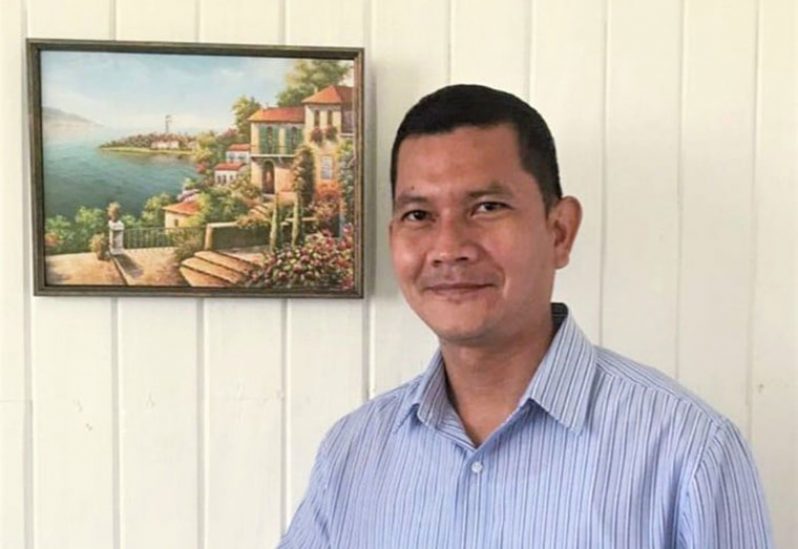– reviewing data, infrastructure ahead of new school term
By Vishani Ragobeer
COGNISANT of the disparities faced by students in the hinterland regions, which have been exacerbated by the COVID-19 pandemic, a review of the existing infrastructure is being done to ensure that some support can be provided in the new school term.
In a recent interview with the Guyana Chronicle, Deputy Chief Education Officer (DCEO) for Amerindian and Hinterland Development, Marti DeSouza said this newly-instituted unit would “immediately” review the infrastructure that exists for hinterland schools.
This review includes understanding how many schools have science laboratories and functioning computer ‘labs’. Once this is done, he affirmed that the central Ministry of Education (MoE) will look into what can be done to support the schools, and perhaps improve the infrastructure.
“This should be done not very long from now. School closed Friday, and it is a matter of me gathering data which is available within the central ministry to see where these facilities exist, and what are the challenges,” DeSouza said.
DeSouza, who hails from the hinterland village of Santa Rosa, is familiar with the disparities in hinterland education. And, he acknowledged that the pandemic has exacerbated these.
“We, in the hinterland, do not have access to Wi-Fi as readily as the coastland, and so the Internet access that students might have had access to was data,” he highlighted.
Since access to data is what teachers and students have relied upon, communication has been limited to sending voice notes and images via WhatsApp. Classes via virtual media such as Zoom or Microsoft Teams would not be made possible.
According to DeSouza, the situation with data presents several challenges, however. The data plans offered by the two mobile telecommunications companies in Guyana is limited. Limited data is not conducive to virtual learning, especially with the emphasis on video streaming, which utilises large amounts of that data.
A basic monthly plan, containing two gigabytes of data, costs $2,000 on one network, and $2,699 on the other. But, consider this: A 30-minute video call via WhatsApp uses approximately 350 megabytes of data.
There are 1,000 megabytes of data in one gigabyte, therefore, approximately three hours of a video call (or approximately six 30-minute sessions) would consume this entire month plan. It is, therefore, difficult to sustain data usage for education.
“COVID has opened our eyes to many, many things such as the systems we have in place to buffer the effects of such a pandemic,” DeSouza lamented.
Another issue has been the unavailability of devices such as tablets, phones and laptops. Several weeks ago, the education ministry began distributing work booklets in an attempt to mitigate these challenges. Still, interactions between learners and teachers have been constrained.
Digital entrepreneur, Samantha Sheoprashad also told the Guyana Chronicle that improved infrastructure is badly needed to improve Internet bandwidth and security, but also that programmes and policies need to be instituted to develop digital literacy in Guyana.
Sheoprashad works with communities in rural areas, and affirmed that in these communities, similar challenges have been experienced ever since the shift to virtual education was made.
“I don’t think any of the policymakers thought this was something that was going to happen… And now that people have to go to school online, those people still do not have access to basic education sometimes, and still do not have access to Internet. More needs to be done,” Sheoprashad emphasised.




.png)









